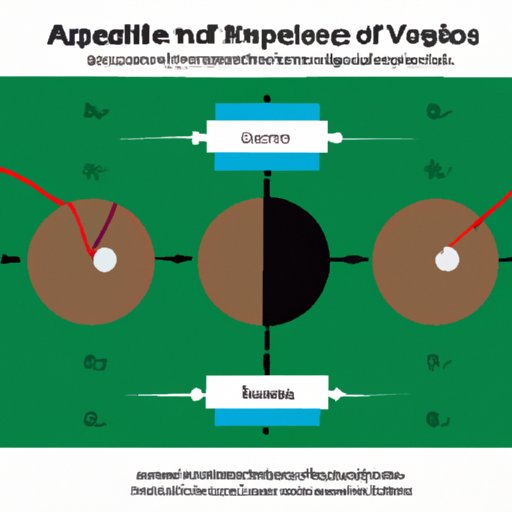Introduction
An independent variable in science is a factor that can be changed or controlled in an experiment. In scientific research, independent variables are used to determine how changes in one factor affect another. They are also used to test hypotheses, which are statements about the relationship between two or more variables. Understanding the role of independent variables in scientific experiments is critical to conducting successful research.
Identifying Independent Variables in a Scientific Experiment
In order to find the independent variable in a scientific experiment, it is important to first understand the different types of variables that exist. These include independent variables, which are factors that can be manipulated or changed; dependent variables, which are factors that are affected by the independent variable; and control variables, which are factors that remain constant throughout the experiment. Once these variables have been identified, it is then possible to identify the independent variable.
When identifying independent variables, it is important to consider the type of experiment being conducted. For example, if a researcher is testing the effect of temperature on plant growth, then temperature would be the independent variable. Other factors, such as the amount of water given to the plants, would be considered control variables. It is also important to consider any potential confounding variables, which are factors that could affect the results of the experiment but are not being tested.

Using Independent Variables to Test Hypotheses in Science
One of the primary uses of independent variables in scientific experiments is to test hypotheses. A hypothesis is a statement about the relationship between two or more variables. For example, a researcher may hypothesize that increasing the temperature will result in faster plant growth. In order to test this hypothesis, the researcher would need to manipulate the temperature (the independent variable) and measure the changes in plant growth (the dependent variable). By doing so, the researcher can determine whether the hypothesis is supported or rejected.
When selecting an appropriate independent variable for a scientific experiment, it is important to consider the range of possibilities. For example, if a researcher is testing the effects of light intensity on plant growth, they may need to select from a range of light intensities (e.g. low, medium, and high). It is also important to ensure that the independent variable is measurable, so that the results of the experiment can be accurately analyzed.

Impact of Changing an Independent Variable on the Outcome of a Scientific Experiment
Changing an independent variable in a scientific experiment can have a profound effect on the results. As such, it is important to consider the potential consequences of altering the independent variable before making any changes. For example, if a researcher is testing the effects of temperature on plant growth and increases the temperature too much, the plants may become stressed or die.
Once the independent variable has been changed, it is essential to analyze the data collected after the change. This will allow the researcher to determine whether the change had the desired effect or not. If the results are not as expected, the researcher can then adjust the independent variable or modify the experiment accordingly.

Relationship Between Independent Variables and Dependent Variables in Science
A key concept in scientific research is the relationship between independent and dependent variables. The independent variable is the factor that is manipulated or changed in the experiment, while the dependent variable is the factor that is affected by the independent variable. For example, if a researcher is testing the effect of temperature on plant growth, then temperature is the independent variable and plant growth is the dependent variable.
It is important to understand the influence of the independent variable on the dependent variable. This can be determined by analyzing the data collected from the experiment. If the results show a correlation between the independent and dependent variables, then the hypothesis is likely to be supported. On the other hand, if the results do not show a correlation, then the hypothesis may be rejected.
Conclusion
In conclusion, an independent variable in science is a factor that can be changed or controlled in an experiment. Identifying independent variables in a scientific experiment involves understanding the different types of variables and considering the type of experiment being conducted. Independent variables are used to test hypotheses and can have a profound effect on the outcome of a scientific experiment. Finally, it is important to understand the relationship between independent and dependent variables and how changes in one can affect the other.
By understanding the role of independent variables in scientific research, researchers can better design experiments, analyze data, and draw meaningful conclusions. Further areas for exploration include the use of multiple independent variables in experiments and the implications of changing multiple independent variables at once.
(Note: Is this article not meeting your expectations? Do you have knowledge or insights to share? Unlock new opportunities and expand your reach by joining our authors team. Click Registration to join us and share your expertise with our readers.)
